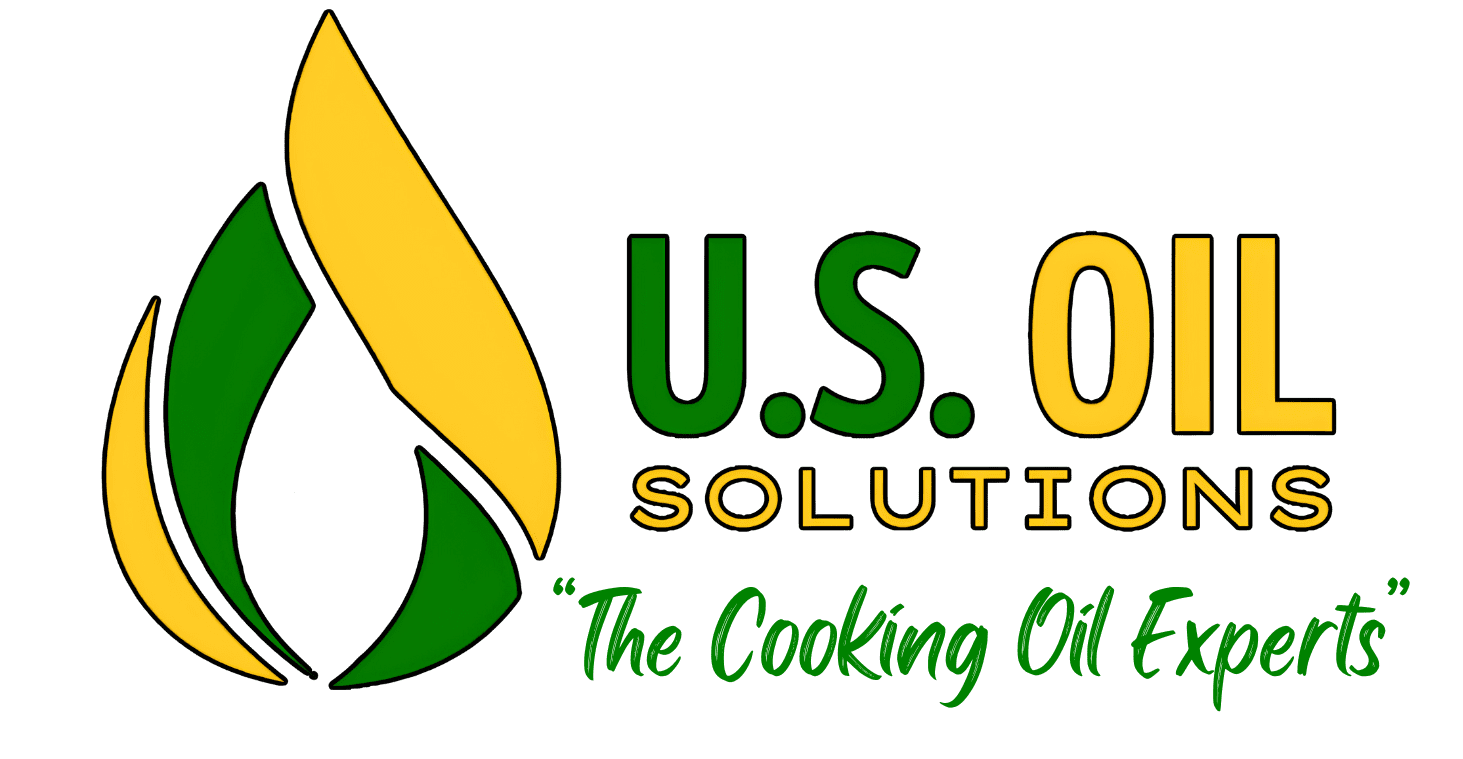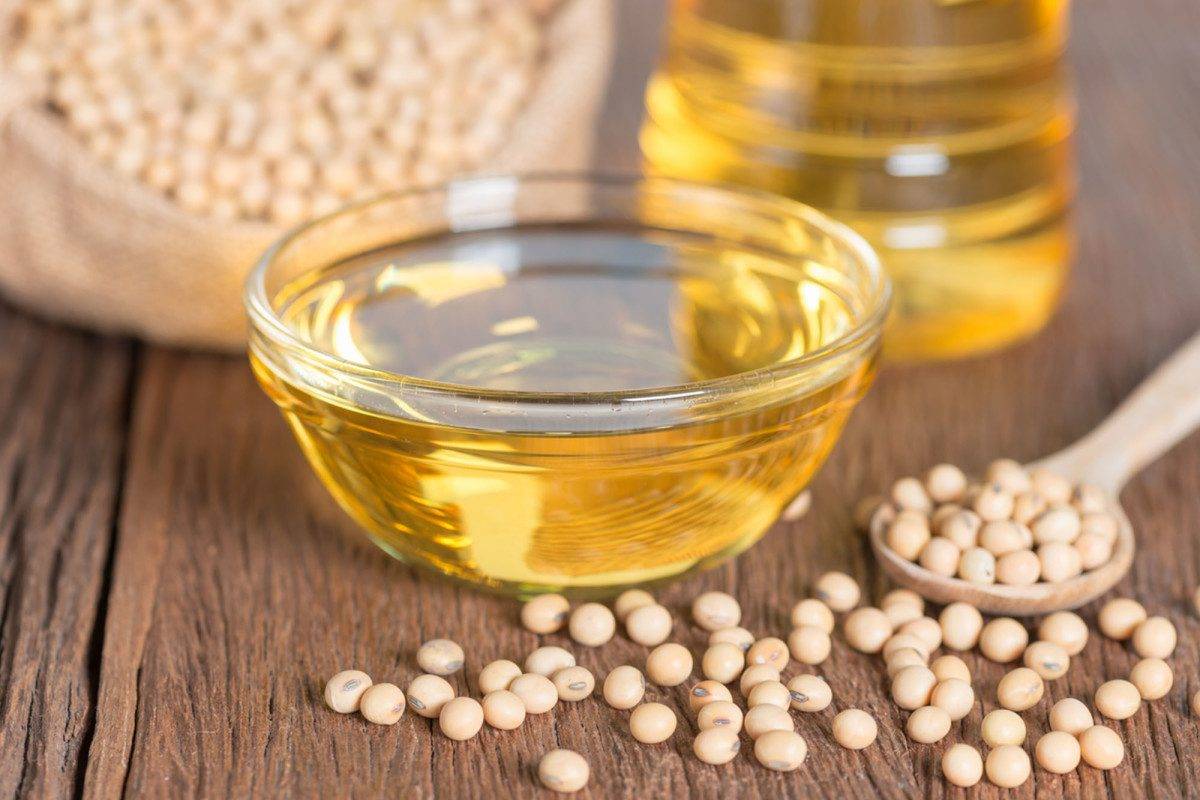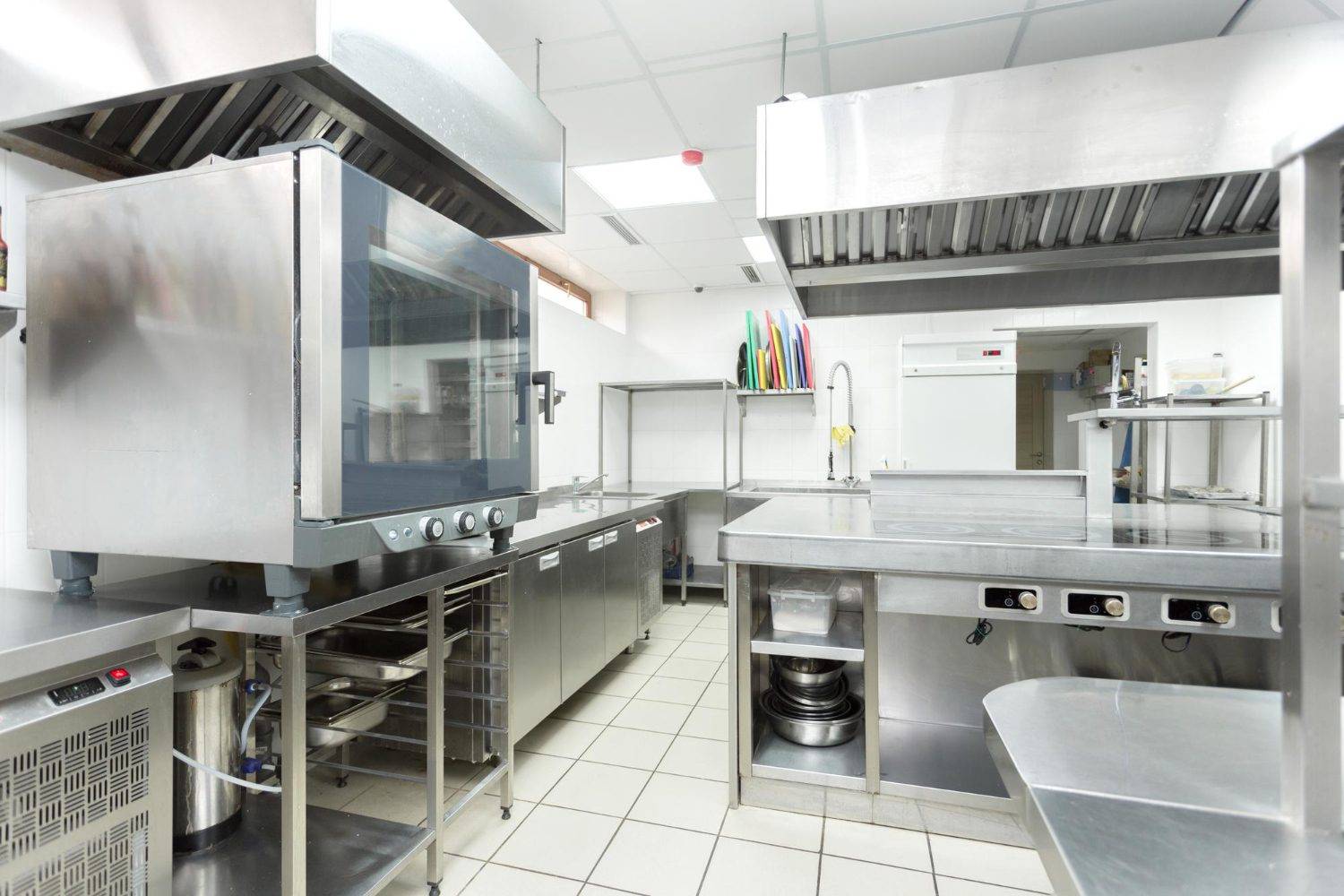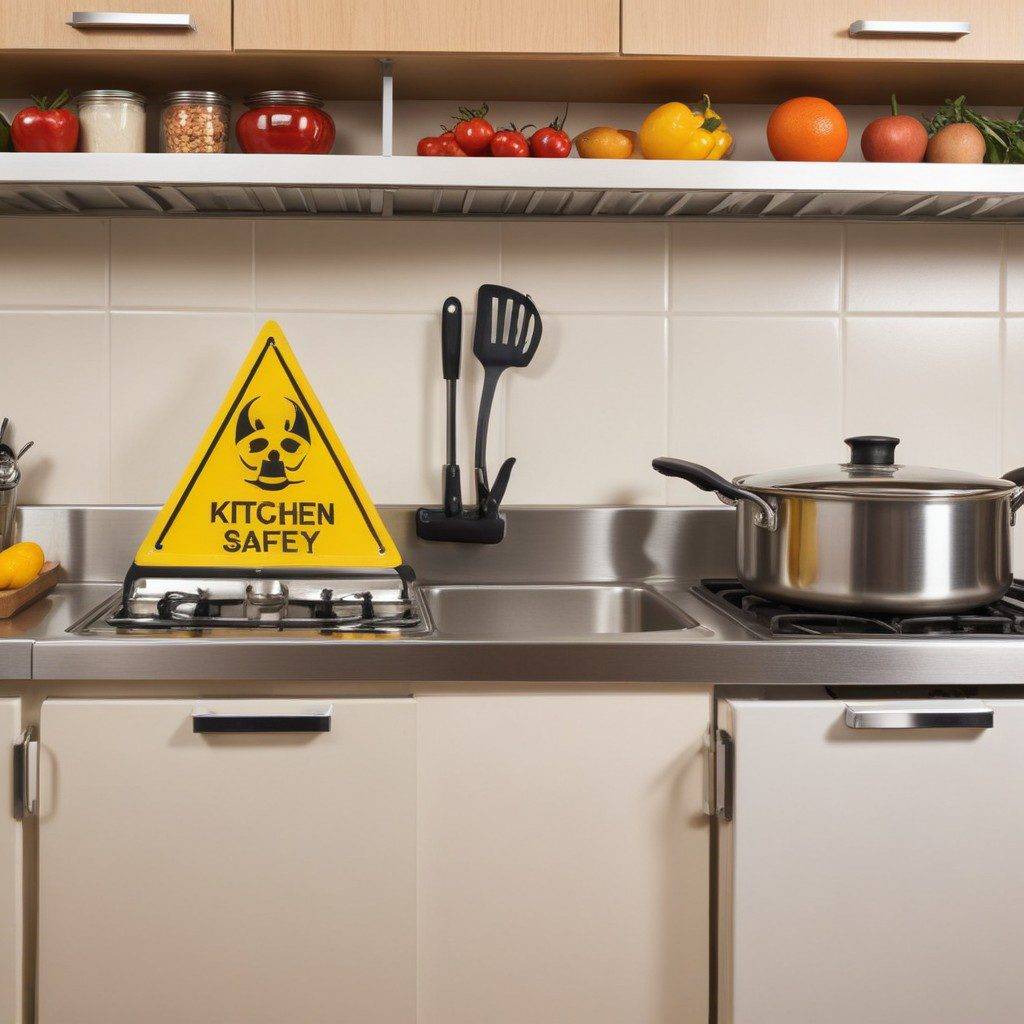
The bustling culinary landscape of Las Vegas demands the highest standards of safety and efficiency in kitchens. With the high volume of food preparation and the fast-paced environment, ensuring Vegas kitchen safety is paramount. This city is renowned for its world-class dining experiences, attracting millions of visitors each year, which means that kitchens must operate at peak performance while prioritizing safety.
The combination of high temperatures, sharp tools, and busy staff increases the likelihood of accidents, making stringent safety measures essential. U.S. Oil Solutions plays a vital role in this context by providing advanced filtration systems, high-quality storage containers, and comprehensive training programs to help manage cooking oil safely and efficiently.
This guide outlines essential safety steps to protect your staff, maintain high food quality, and comply with health regulations, focusing on Vegas kitchen safety. By implementing these practices, you can prevent accidents, reduce health risks, and create a safer, more efficient work environment, ultimately enhancing the dining experience for your customers.
Whether you are managing a high-end restaurant on the Strip or a popular local eatery, prioritizing Vegas kitchen safety is crucial for operational success and sustainability in this vibrant culinary hub. Partnering with U.S. Oil Solutions ensures that your kitchen operations are supported by top-notch products and services tailored to meet the unique demands of the Las Vegas culinary scene.
1. Proper Cooking Oil Filtration and Management for Vegas Kitchen Safety
Proper management of cooking oil is a critical safety concern in any kitchen. In the high-volume environments of Las Vegas kitchens, the stakes are even higher. Dirty or degraded oil compromises food quality and poses significant safety risks, including fire hazards. When cooking oil is not filtered or changed regularly, it accumulates food particles, carbon deposits, and other impurities, increasing its flammability and the risk of dangerous flare-ups. Addressing this is crucial for Vegas kitchen safety.
Additionally, degraded oil can produce harmful compounds, posing health risks to both kitchen staff and diners. Maintaining clean, high-quality oil ensures delicious and safe food while protecting your kitchen from avoidable accidents and ensuring compliance with health regulations. Proper oil management also reduces waste, lowers operational costs, and extends the lifespan of frying equipment, making it a crucial aspect of Vegas kitchen safety.
2. Regular Equipment Maintenance for Vegas Kitchen Safety
Regular maintenance of kitchen equipment is crucial for preventing accidents and ensuring smooth operations. Faulty equipment can lead to severe injuries and disrupt kitchen workflows. Implementing a scheduled maintenance program helps identify and address potential issues before they become major problems, thus enhancing Vegas kitchen safety.
Regular maintenance not only extends the lifespan of your equipment but also ensures it operates efficiently, reducing the risk of malfunctions that can lead to accidents. Well-maintained equipment is less likely to cause fires, spills, or other hazardous incidents in the kitchen, further promoting Vegas kitchen safety.
3. Safe Handling and Storage of Cooking Oil for Vegas Kitchen Safety
Proper handling and storage of cooking oil are essential to prevent accidents and maintain a safe kitchen environment. Cooking oil can be hazardous if not handled correctly, leading to burns, slips, and even fires. To ensure Vegas kitchen safety, it is crucial to implement best practices for managing cooking oil throughout its lifecycle, from delivery and storage to usage and disposal.
Handling Tips:
- Use Proper Containers: Always use containers specifically designed for holding and transporting hot oil. These containers should be sturdy, heat-resistant, and equipped with secure lids to prevent spills.
- Monitor Oil Levels: Avoid overfilling fryers and containers to prevent dangerous splashes and spills. Keeping oil at the recommended levels also ensures optimal cooking performance.
- Cool Before Handling: Allow oil to cool to a safe temperature before moving or disposing of it. Handling hot oil increases the risk of severe burns and accidents.
- Proper Lifting Techniques: Train staff to use proper lifting techniques when transporting oil to avoid strains and spills. Utilize equipment like oil caddies or carts to facilitate safe movement.
Storage Tips:
- Designated Storage Areas: Store oil in a designated, well-ventilated area away from heat sources and open flames. This reduces the risk of accidental ignition and ensures a safer environment.
- Labeling and Organization: Clearly label all oil containers and organize them to prevent confusion and mishandling. Proper labeling helps in identifying fresh oil from used oil, ensuring that the correct oil is used for cooking.
- Regular Inspections: Conduct regular inspections of storage areas and containers to check for leaks, deterioration, and other potential hazards. Promptly address any issues to maintain a safe environment.
Disposal Tips:
- Safe Disposal Practices: Dispose of used oil according to local regulations and best practices. Use designated disposal containers and services that specialize in handling cooking oil waste.
- Recycling Programs: Consider participating in oil recycling programs, which can convert used oil into biofuel or other products. This not only helps in maintaining Vegas kitchen safety but also supports environmental sustainability.
Implementing these practices ensures that cooking oil is managed safely and efficiently, minimizing risks and promoting a healthier kitchen environment. By prioritizing the proper handling and storage of cooking oil, you protect your staff from potential injuries and reduce the likelihood of fires and other accidents, thereby enhancing the overall safety and efficiency of your operations in the vibrant culinary scene of Las Vegas.
U.S. Oil Solutions provides high-quality storage containers and handling equipment designed to enhance Vegas kitchen safety. Our products are built to withstand the demands of a busy kitchen environment, ensuring that oil handling is both safe and efficient.
4. Implementing Fire Safety Measures for Vegas Kitchen Safety
Given the high temperatures involved in cooking, especially with fryers, fire safety is a critical concern. Implementing robust fire safety measures can prevent minor incidents from escalating into major disasters, an essential aspect of Vegas kitchen safety. In a bustling kitchen, the combination of open flames, hot oil, and electrical appliances creates a perfect storm for potential fire hazards.
Without proper fire safety protocols, a small grease fire can quickly spiral out of control, endangering the lives of kitchen staff and diners, and causing significant property damage. Key fire safety measures include the installation of advanced fire suppression systems, regular maintenance and cleaning of exhaust hoods and ducts to prevent grease buildup, and ensuring that all fire extinguishers are easily accessible and in good working condition.
Additionally, comprehensive staff training on fire prevention and emergency response is crucial. Conducting regular fire drills ensures that all team members know how to react swiftly and effectively in case of a fire, minimizing risks and damage. By prioritizing fire safety, you not only protect your employees and customers but also preserve your business’s reputation and operational continuity.
In a city like Las Vegas, where excellence and safety are paramount, these measures are indispensable for maintaining Vegas kitchen safety. Key fire safety practices include:
- Install Fire Suppression Systems: Ensure your kitchen is equipped with an appropriate fire suppression system. Regularly check and maintain these systems to ensure they are in working order.
- Keep Fire Extinguishers Accessible: Fire extinguishers should be readily accessible and staff should be trained in their use.
- Clean Exhaust Hoods and Ducts: Regularly clean exhaust hoods and ducts to prevent grease build-up, which can be a major fire hazard.
5. Ensuring Proper Ventilation for Vegas Kitchen Safety
Proper ventilation is essential for maintaining air quality and reducing the risk of fire. Poor ventilation can lead to the accumulation of smoke, heat, and grease, creating a hazardous environment. Without effective ventilation, the kitchen can quickly become filled with fumes and vapors that are not only unpleasant but also harmful to health. Prolonged exposure to poor air quality can lead to respiratory issues, eye irritation, and other health problems for kitchen staff. The buildup of grease in ventilation ducts and on surfaces increases the risk of grease fires, which can be difficult to control and cause extensive damage.
Proper ventilation systems, including hoods, exhaust fans, and ductwork, are designed to remove these contaminants, ensuring a safer and more comfortable working environment. Regular cleaning and maintenance of these systems are critical to their effectiveness, as neglected ventilation can lead to blockages and reduced performance. Efficient ventilation helps control kitchen temperatures, preventing overheating and creating a more comfortable and productive workspace. In the context of Vegas kitchen safety, investing in high-quality ventilation solutions not only enhances air quality and fire safety but also contributes to overall operational efficiency and compliance with health regulations.
By prioritizing ventilation, you ensure that your kitchen remains a safe, healthy, and efficient place to work, meeting the high standards expected in the vibrant culinary scene of Las Vegas. Benefits of proper ventilation include:
- Improved Air Quality: Proper ventilation removes smoke, odors, and fumes, ensuring a comfortable and safe environment for kitchen staff.
- Reduced Fire Risk: Effective ventilation systems reduce the accumulation of grease and heat, lowering the risk of fire.
6. Staff Training and Safety Protocols for Vegas Kitchen Safety
A well-trained staff is the backbone of a safe kitchen. Regular training on safety protocols and best practices ensures that all team members are aware of potential hazards and know how to respond to them, reinforcing Vegas kitchen safety. Comprehensive training programs should cover a wide range of topics, including proper handling and storage of cooking oil, equipment operation and maintenance, and fire prevention and response. Staff should be familiar with the correct use of personal protective equipment (PPE) and understand the importance of maintaining a clean and organized workspace to minimize risks.
Regularly scheduled training sessions and refreshers help keep safety knowledge current, especially with any updates to health and safety regulations. Simulating real-life scenarios through drills can improve readiness and ensure that staff can act quickly and effectively during emergencies. Encouraging a culture of safety, where employees feel comfortable reporting hazards and suggesting improvements, also enhances overall kitchen safety. By fostering a proactive approach to safety, managers can significantly reduce the likelihood of accidents and ensure a more secure working environment.
Investing in the education and preparedness of your team not only protects their well-being but also boosts morale and productivity, as employees who feel safe are more likely to perform at their best. In the high-pressure culinary environment of Las Vegas, where the stakes are always high, having a well-trained staff is crucial for maintaining the high standards of Vegas kitchen safety and delivering exceptional service to patrons.Key training areas include:
- Oil Management: Train staff on the proper handling, filtration, and disposal of cooking oil.
- Fire Safety: Conduct regular fire safety training and drills.
- Equipment Operation: Ensure all staff members are trained to operate kitchen equipment safely and correctly.
(Let me know if this needs to be changed)
U.S. Oil Solutions offers comprehensive training programs tailored to your kitchen’s needs. Our experts can provide on-site training to ensure your staff is well-versed in the best practices for managing cooking oil and maintaining Vegas kitchen safety.
7. Regular Safety Audits for Vegas Kitchen Safety
Conducting regular safety audits helps identify potential hazards and areas for improvement in your kitchen operations. These audits ensure that safety measures are up-to-date and effective, a vital part of Vegas kitchen safety. By systematically evaluating all aspects of your kitchen’s operations, from equipment functionality to staff adherence to safety protocols, you can uncover issues that might otherwise go unnoticed. Audits should include a thorough inspection of fire safety equipment, ventilation systems, and the cleanliness and organization of workspaces.
During safety audits, it is crucial to review and update your kitchen’s emergency preparedness plans and verify that all staff members are familiar with these procedures. This proactive approach allows you to address minor issues before they become significant problems, reducing the risk of accidents and ensuring a safer environment for everyone. Detailed records of each audit can help track progress over time and provide valuable insights into recurring issues or areas needing more attention.
Engaging third-party experts for these audits can bring an objective perspective and ensure that all safety standards and regulations are met. This can be particularly important in the dynamic and highly regulated culinary scene of Las Vegas. Regular audits also demonstrate a commitment to safety that can boost staff confidence and customer trust. By maintaining rigorous audit schedules and acting on the findings, you not only enhance Vegas kitchen safety but also contribute to a culture of continuous improvement and excellence in your culinary operations. Benefits of safety audits include:
- Identify Hazards: Regular audits help identify potential safety risks before they lead to accidents.
- Ensure Compliance: Audits ensure that your kitchen complies with local health and safety regulations.
- Continuous Improvement: Regular reviews of safety protocols help continuously improve kitchen safety.
Conclusion
Safety in the kitchen is paramount, especially in the bustling culinary landscape of Las Vegas. By implementing these key safety steps, you can create a safer, more efficient kitchen environment. In a city known for its high standards and constant demand for excellence, maintaining Vegas kitchen safety not only protects your staff but also ensures that your customers receive the highest quality dining experience.
U.S. Oil Solutions is here to support you with top-notch products and services tailored to your needs. Our advanced filtration systems and premium cooking oils are designed to enhance the quality and safety of your frying processes, while our comprehensive training programs ensure your staff is well-prepared to handle any situation. Additionally, our regular safety audits provide you with the insights and recommendations needed to continuously improve your kitchen operations, further solidifying Vegas kitchen safety.
Partnering with U.S. Oil Solutions ensures that your kitchen operates smoothly and safely, allowing you to focus on what you do best—delivering exceptional culinary experiences. Our commitment to safety and quality helps you maintain compliance with local health regulations, reduce the risk of accidents, and extend the life of your kitchen equipment. Contact us today to learn more about how we can help you enhance safety and efficiency in your Vegas kitchen. Let us be your trusted partner in achieving the highest standards of culinary excellence and Vegas kitchen safety.
